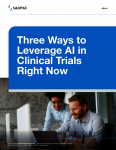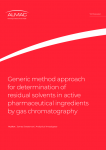Could AI signal the end of the use of lab rats in research? Olden Labs reveals all

Using artificial intelligence (AI), genetic engineering, and robotics, the company said it proudly introduces the world’s first automated animal research lab.
Founded by a team of experts spanning diverse disciplines, including a Harvard PhD biologist, a Forbes 30 Under 30 AI developer, and engineers from 10X Genomics and Apple, Olden Labs stands backed by supporters such as CHMBR Partners, Healthspan Capital, and the Mercatus Center’s Emergent Ventures.
“Animal research has been a cornerstone of therapy development, yet it has seen limited innovation,” remarks Michael Florea, co-founder, and CEO of Olden Labs.
“Many current methods are relics of the 1960s, while biologists revel in terabytes of digital data, animal studies remain entrenched in manual processes, often relegating results to paper. It became evident that bridging this technology gap could yield profound societal benefits.”
Animal testing ineffective and costly
Olden’s emergence aligns with a pivotal moment in legislative history, where a new US law eliminates the requirement for drugs in development to undergo testing in animals before human trials. Advocates for animal rights have long championed such a move, arguing that animal testing can be both ineffective and costly.
Dating back to the 18th century, laboratory rats have played a pivotal role in scientific research, from studies on digestion to advancements in physiology, pharmacology, and toxicology.
US Senator Rand Paul, who sponsored the FDA Modernization Act 2.0, emphasized the law's significance, stating that it will help end the "needless suffering and death of animal test subjects" while expediting the delivery of safer, more effective drugs to market by streamlining outdated regulatory processes.
This legislative shift comes at a time when over $36 billion is annually allocated to animal studies, yet a staggering 90.4% of new drugs fail in human clinical trials. The archaic nature of animal research, characterized by high costs, low reproducibility, and poor data quality, necessitates a paradigm shift.
Real-time monitoring of animal health and behavior
Olden Labs, with its trifecta of innovative technologies encompassing robotics, AI, and gene delivery, aims to revolutionize animal studies. Their pioneering product, DOME smart cages, equipped with AI capabilities, offers real-time monitoring of animal health and behavior, providing researchers with a comprehensive understanding of their subjects' well-being.
“Labs across the U.S. utilize 111 million rodents annually, with upkeep costs exceeding $16 billion,” explains Charles Hirschler, managing member of CHMBR Partners, L.P., Olden Labs’ lead seed investor.
“Having experienced firsthand the challenges of traditional animal research, coupled with the rapid advancements in AI, robotics, and data acquisition, Olden Labs presents a unique opportunity to address these pressing needs.”
Voices as well as Olden Labe within the pharmaceutical sector have echoed these sentiments, highlighting the shortcomings of animal testing.




















